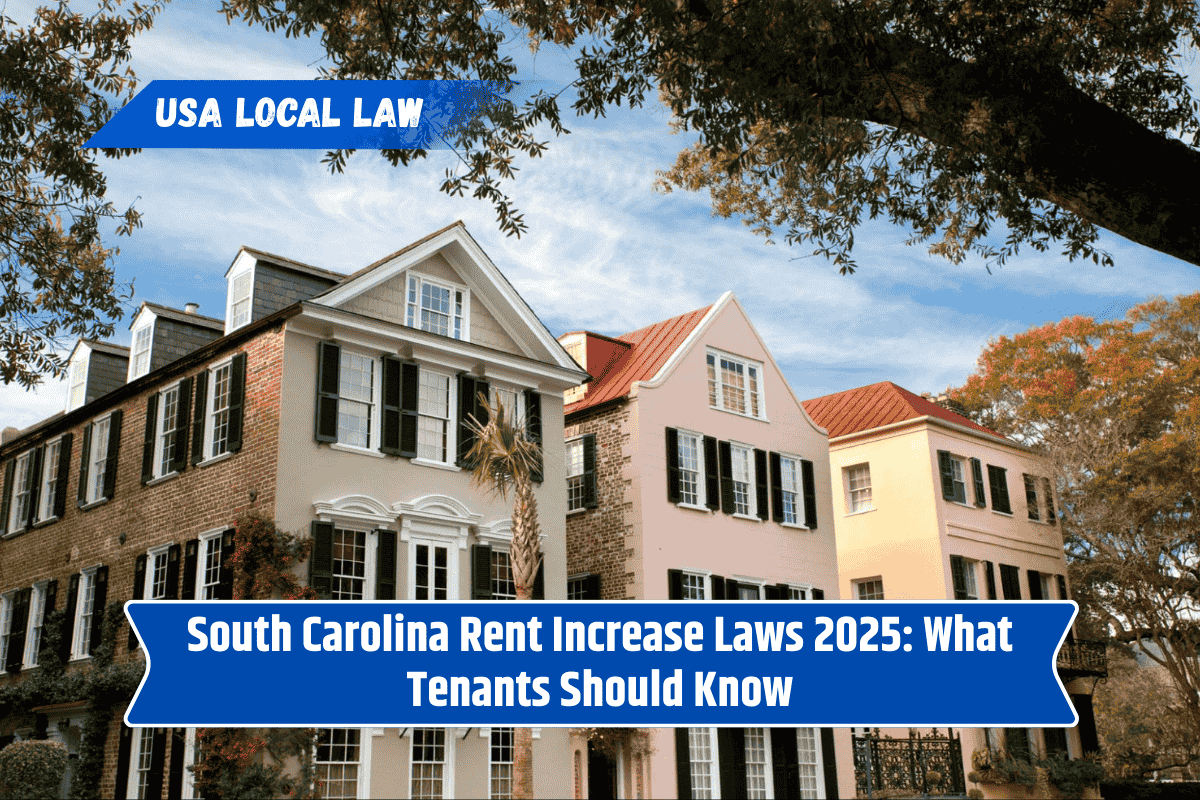In South Carolina, there are specific rules and regulations regarding rent increases that both tenants and landlords should be aware of in 2025.
While South Carolina does not impose strict rent control laws like some other states, tenants still have certain protections under state and federal laws. Here’s a comprehensive guide to what you need to know about rent increases in South Carolina.
1. No Statewide Rent Control
South Carolina does not have statewide rent control laws, meaning landlords are generally free to set and increase rent amounts as they choose. However, there are still some important limitations and procedures to follow to ensure the process is fair and transparent.
2. Notice Requirements for Rent Increases
Although there are no caps on rent increases in South Carolina, landlords are required to provide notice to tenants before increasing rent. The specific notice period depends on the type of lease agreement:
Month-to-month leases: Landlords must give at least 30 days’ notice before increasing rent. This gives tenants time to consider the change or decide whether to stay or leave.
Fixed-term leases: If you have a lease agreement with a set term (e.g., 12-month lease), the landlord cannot increase the rent until the lease expires unless a rent increase clause is included in the lease. If a rent increase clause exists, the landlord must adhere to the agreed-upon terms, such as providing a specific amount of notice.
No advance notice on lease renewal: In some cases, if you’re on a fixed-term lease, the landlord may include an automatic renewal clause. In such cases, unless otherwise stated in the lease, the rent may be increased automatically upon renewal, but the tenant should be notified of the increase well in advance.
3. Local Regulations on Rent Increases
While South Carolina does not have statewide rent control, some local jurisdictions (like large cities) may have their own regulations or ordinances related to rent increases. For example:
Municipalities in South Carolina may have additional rules or guidelines regarding rental properties that protect tenants from unfair practices. It’s important to check local regulations for any specific restrictions on rent increases or protections for tenants in your city or county.
4. Rent Increases and Lease Violations
Landlords cannot increase rent for retaliatory reasons. For example:
Retaliation: If a tenant has complained to the landlord about a property condition, filed a formal complaint with the city, or exercised any other legal rights, the landlord is prohibited from raising rent as retaliation.
Discrimination: Rent increases cannot be applied discriminatorily based on race, gender, disability, religion, or national origin. Fair housing laws at the federal and state levels protect against such actions.
5. Limits on Rent Increase Frequency
There are no restrictions on the frequency of rent increases in South Carolina. Landlords can raise rent as often as they choose, provided they meet the legal notice requirements.
However, excessive or frequent increases could potentially result in tenants deciding to leave or breaking their lease, which could be costly for the landlord in the long run.
6. Rent Increases During the Pandemic
Although the COVID-19 pandemic led to various temporary rent control measures in some states, South Carolina did not implement statewide rent freezes or moratoriums.
However, there were federal protections in place for renters under certain conditions, particularly regarding eviction protections for tenants experiencing financial hardship.
In 2025, any pandemic-related restrictions on rent increases or evictions will have likely ended, but tenants facing financial difficulties may be able to seek assistance programs or other forms of relief, including local government support or nonprofit organizations.
7. Rent Increase Disputes
If a tenant believes a rent increase is unfair or does not comply with the terms of the lease agreement, they have the right to dispute the increase. Tenants may:
Negotiate with the landlord for a more reasonable rent increase.
Seek legal advice if they believe the increase violates any terms of the lease or is in violation of state law.
File a complaint with local housing authorities or the South Carolina Department of Consumer Affairs if they believe their rights are being violated.
In South Carolina, rent increases are generally allowed but must comply with notice requirements. The state does not have rent control laws, so landlords can set rent rates based on market conditions.
However, tenants are protected from retaliatory or discriminatory rent increases, and landlords must adhere to the terms of the lease agreements.
Understanding these laws helps both tenants and landlords navigate the process of rent increases and avoid potential disputes. Always check with local authorities or legal professionals if you feel your rights may have been violated.
